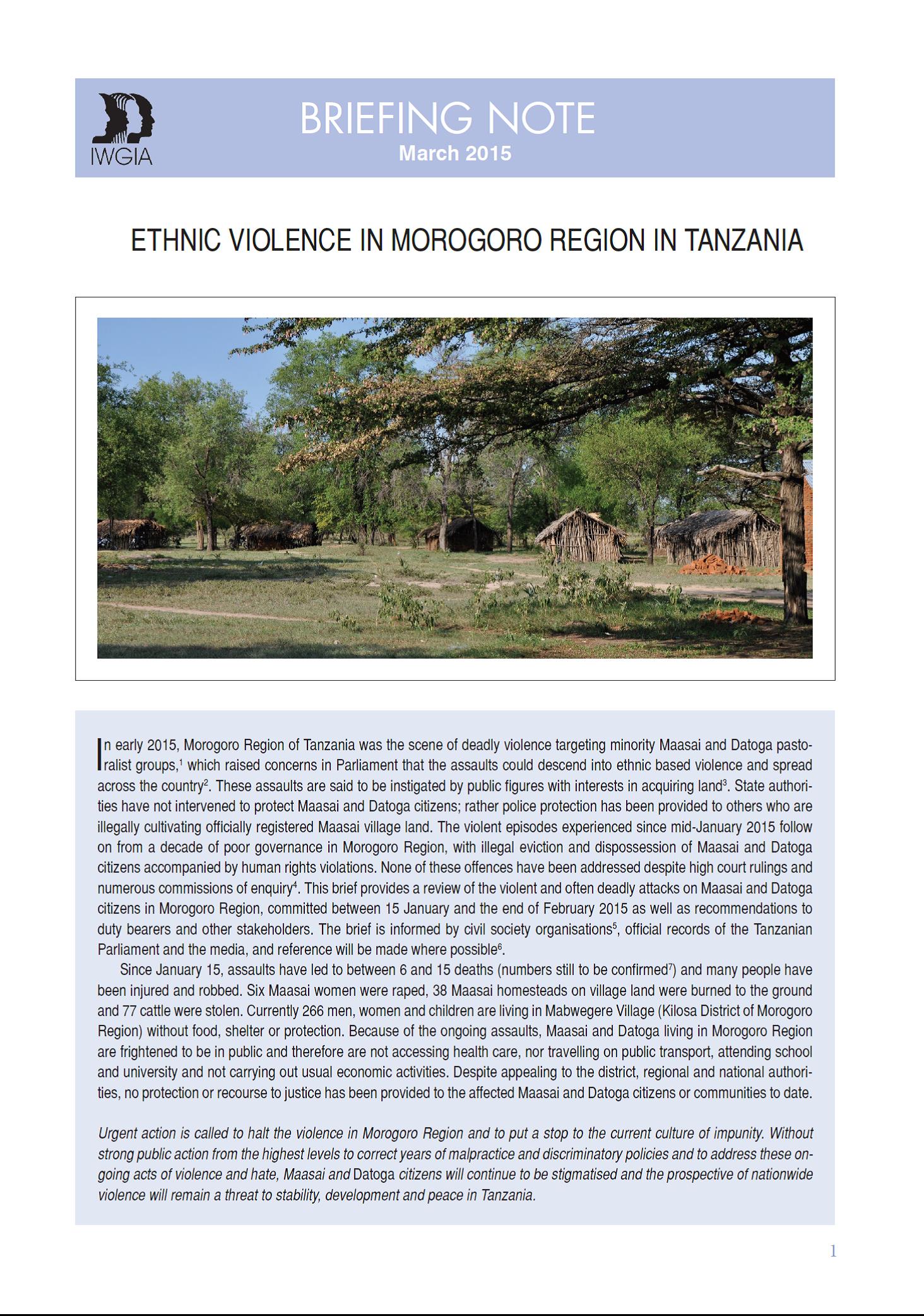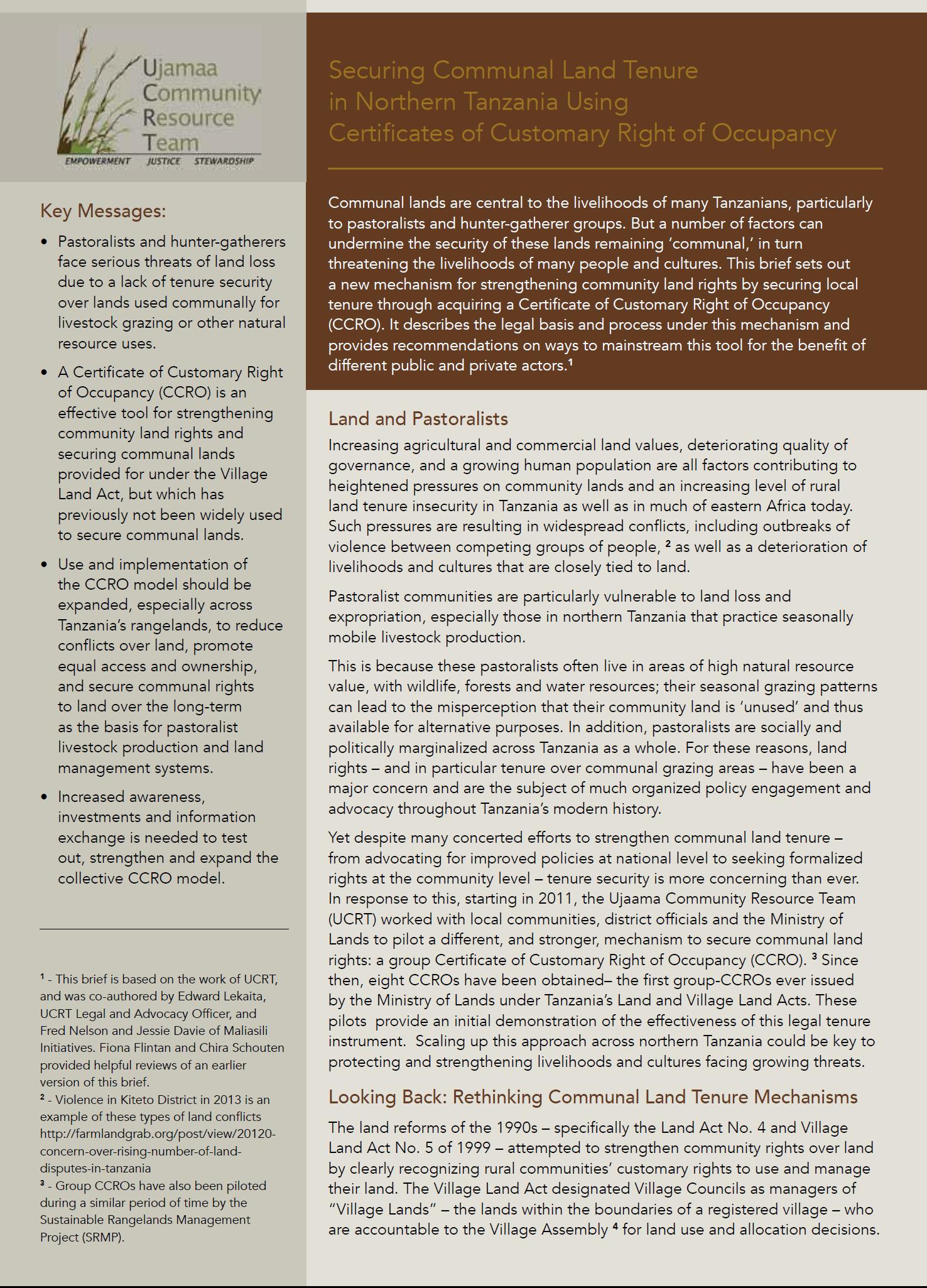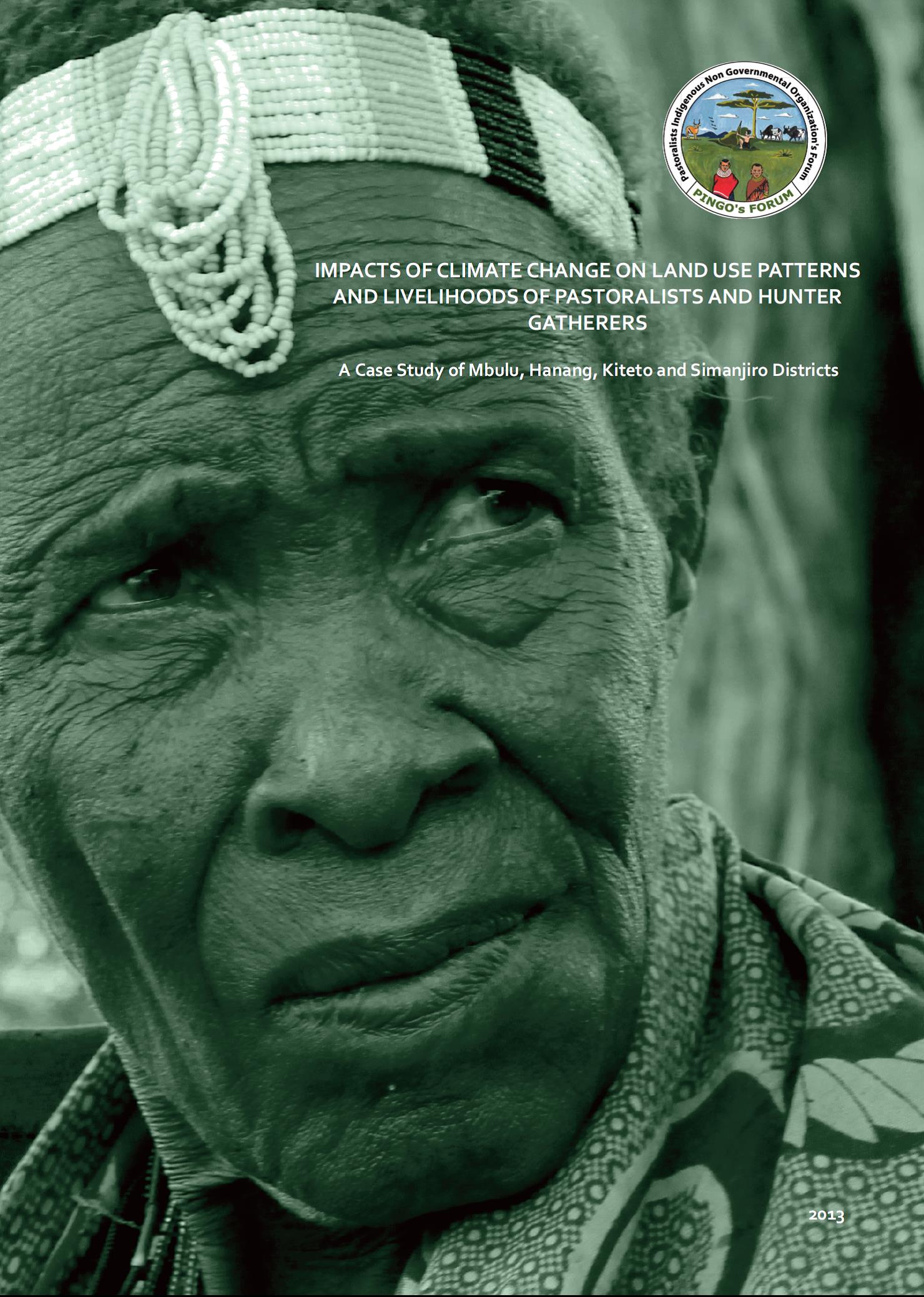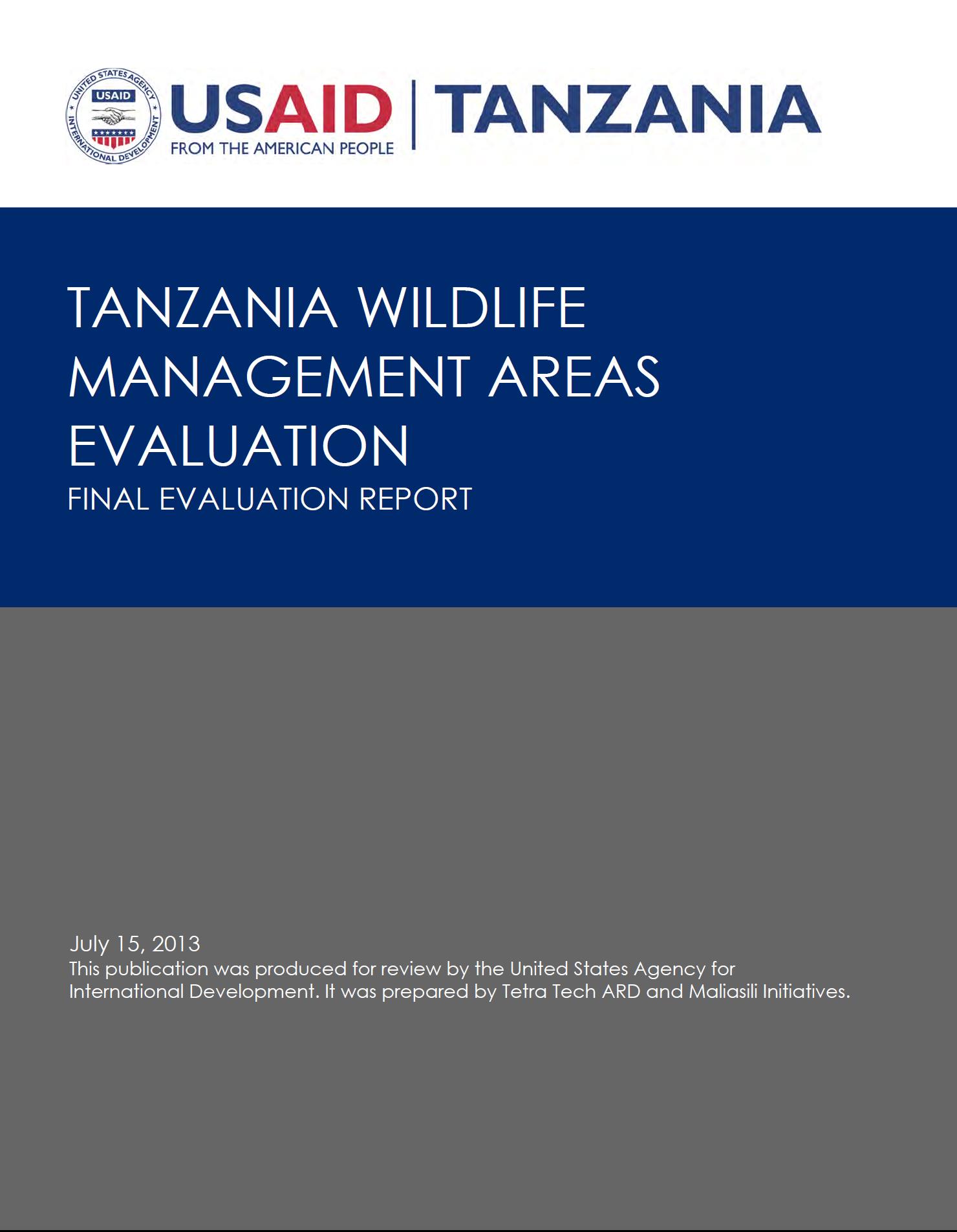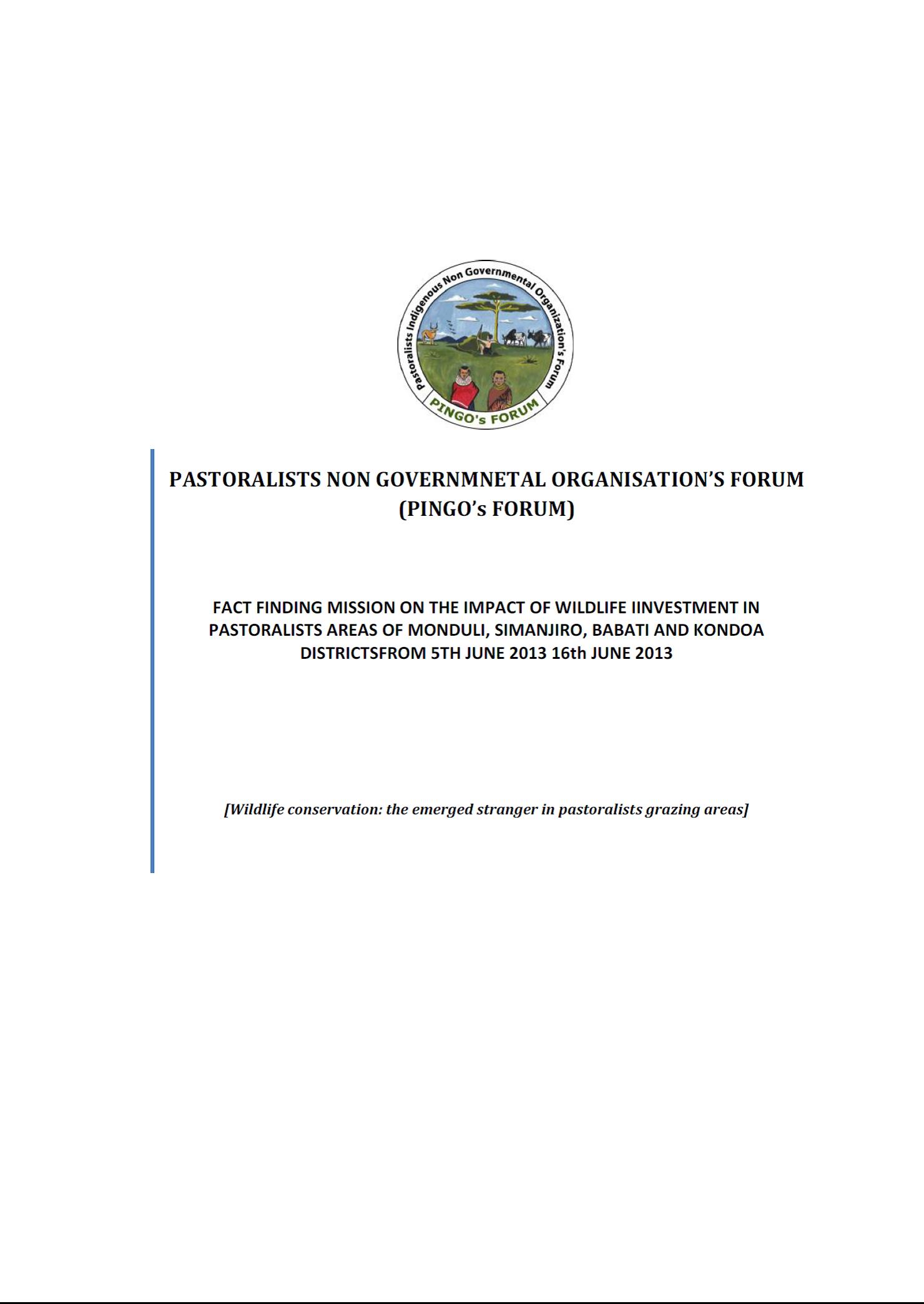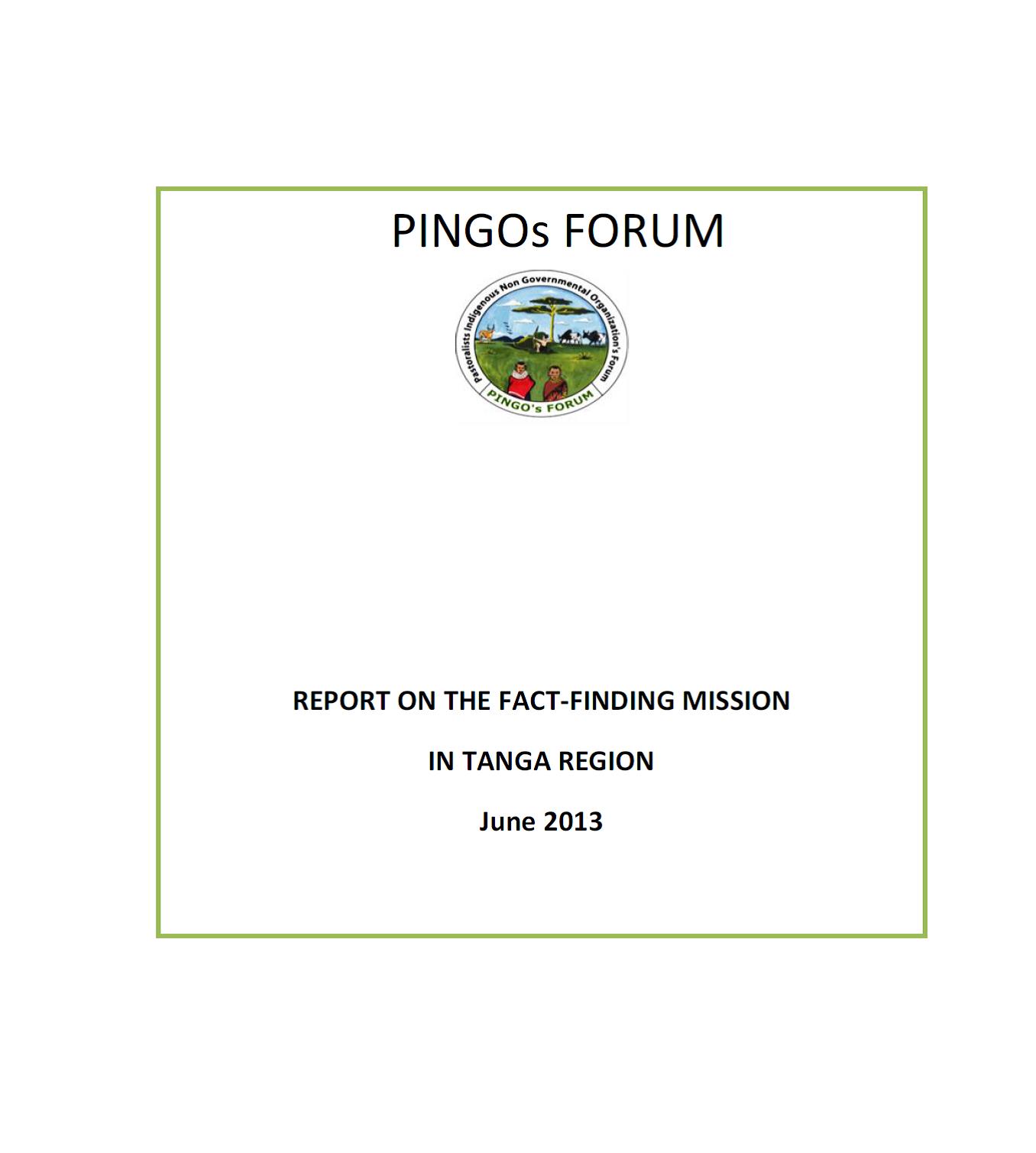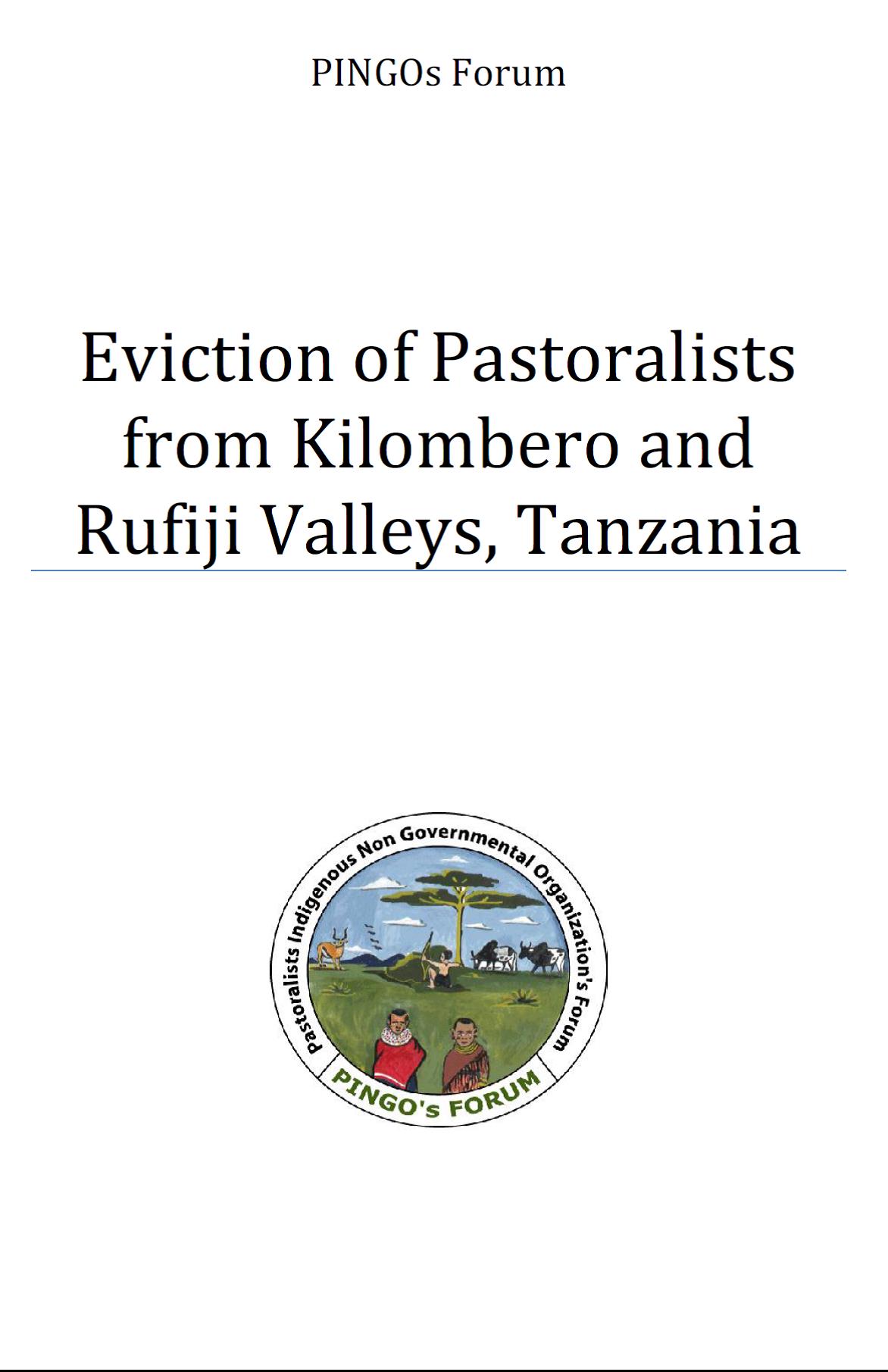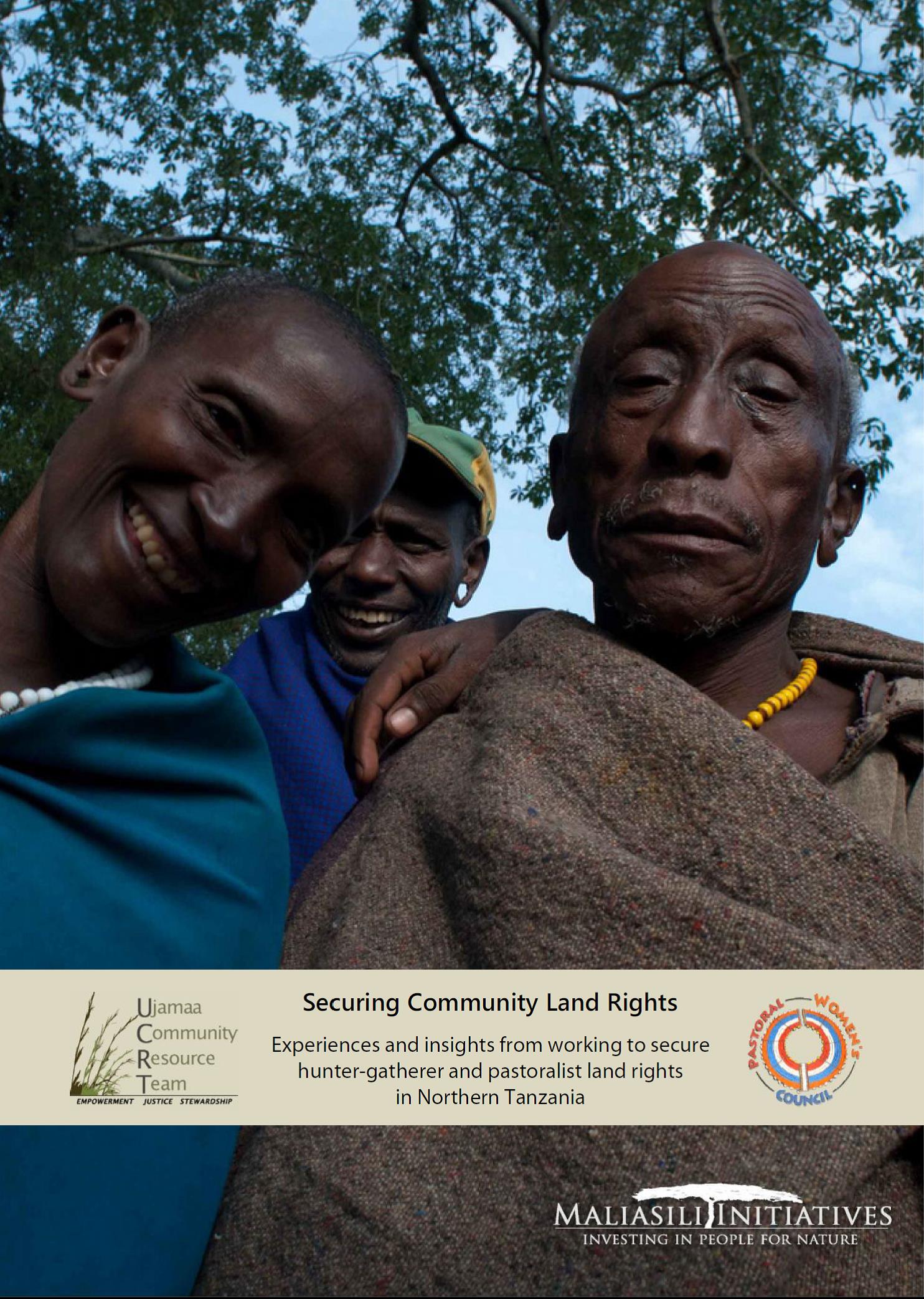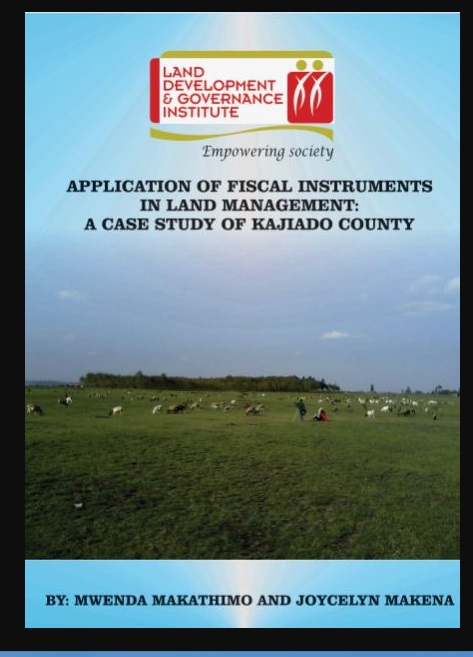Ethnic Violence in Morogoro Region in Tanzania
In early 2015, Maasai and Datoga citizens living in the Morogoro region of Tanzania were victims of deadly, ethnic violence. According to reports from local media, the assaults were instigated by public figures interested in acquiring land, and state authorities have not intervened to protect Maasai citizens. Police protection has instead been given to others who are illegally cultivating officially registered Maasai land.

